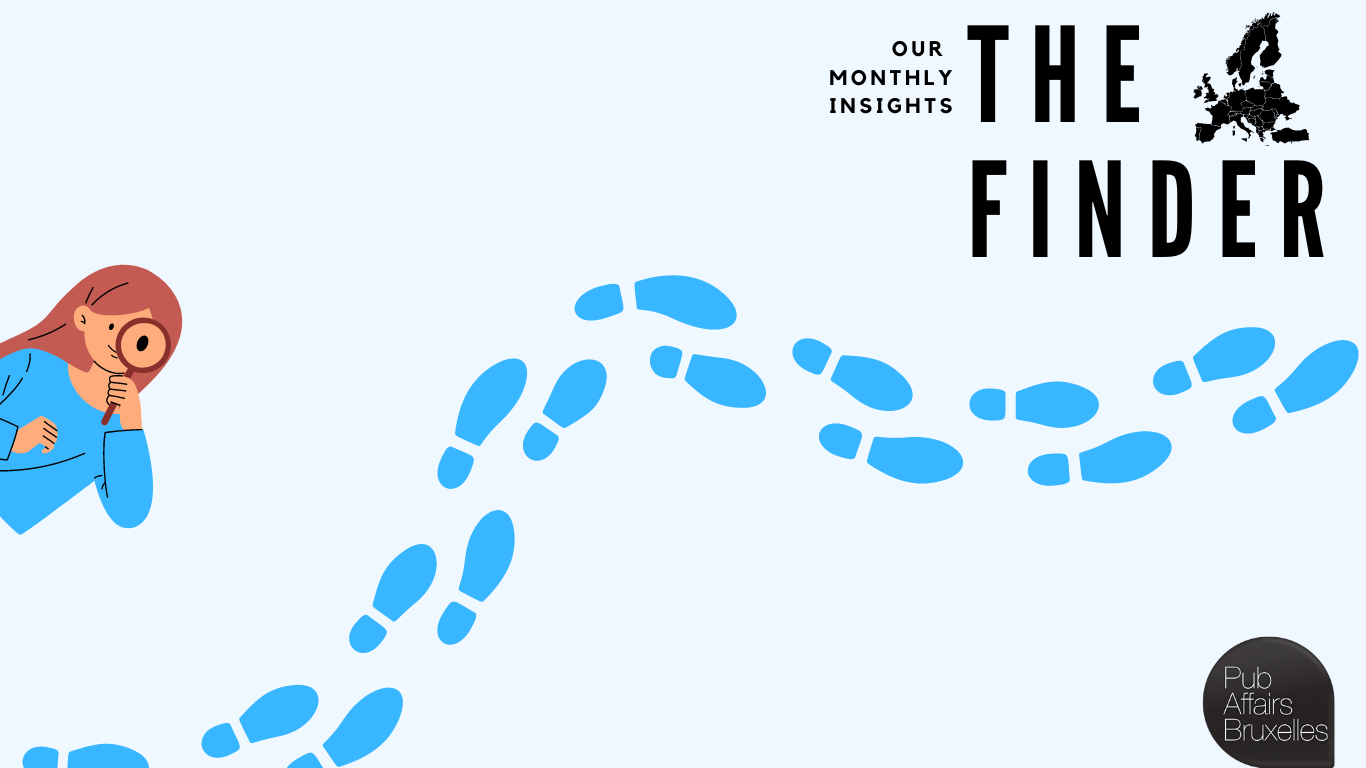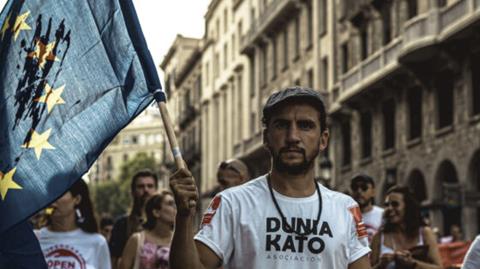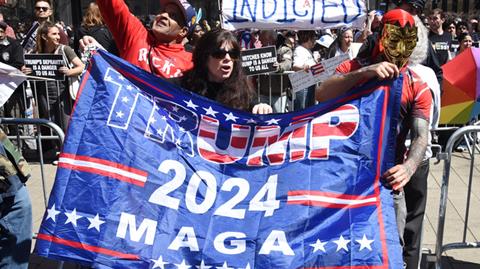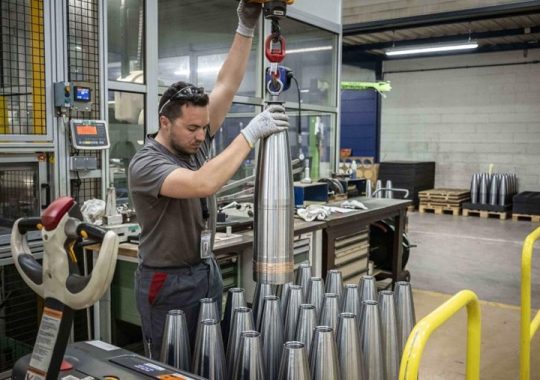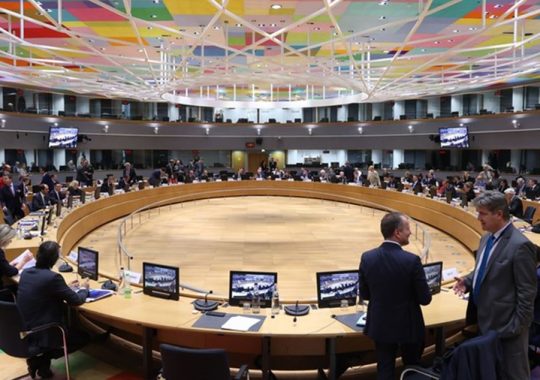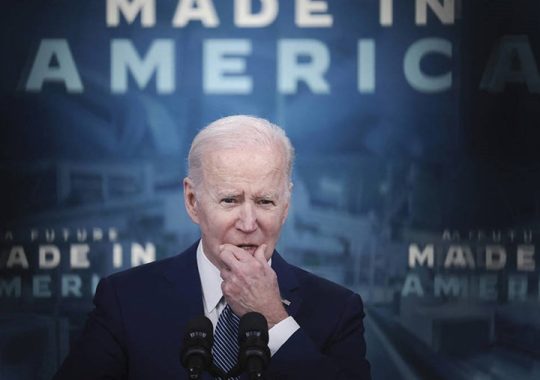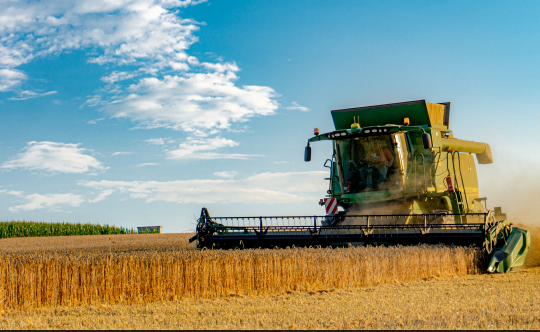2024, “the big elections year” starts with mounting geopolitical concerns and increasing geoeconomic tensions, while the EU and US elections are gaining the spotlight for their potential impacts on crucial policy domains in Europe and beyond.
While the wars in Ukraine and Gaza continue to spark debate across both sides of the Atlantic and the world, the issues surrounding the global economic system and its transformation in times of crisis, geopolitical instability and de-globalisation tendencies have been featuring high this month.
As a Project Syndicate analysis explains “now, governments and companies around the world have given high priority to shortening supply chains, rebuilding domestic production capacity, and diversifying suppliers. But these responses are motivated not only by pragmatic risk-management considerations but also by the goal of economic self-reliance, an aspiration that threatens to derail any stable restructuring of the global economy”.
Within this context, by entering into 2024, the European elections are starting to be scrutinised in terms of possible shifts in European politics at large. Consequently, how EU current policies will be affected, redefined or carried on is of high importance especially, but not exclusively, in relation to the green transition, EU competitiveness and raw materials.
A further layer of complexity of the EU elections process is added by the fact that the European political landscape is “not simply divided between left and right, and between pro- and anti-European integration attitudes – but between different ‘crisis tribes’ whose members have been traumatised by key events”, as a ECFR policy brief explains.
As the protests of European farmers are mounting, prompting the European Commission to open a dialogue on the future of farming, the domain of agriculture has become the symbol not only of how a specific sector of the EU economy is dealing with the consequences of the Russian invasion of Ukraine, but also of how EU policies as a whole are increasingly confronted with the daunting task of “fostering sustainable strategies that are adaptable to both geopolitical and societal frameworks”, as this Ifri note explains, from a Franco-German perspective on the EU common agricultural policy.
Meanwhile, the European public debate is also concentrated on how to deal with the transmutation of both US domestic and foreign policy. According to a CER analysis “the biggest threat, and the one that Europeans will struggle to mitigate, is that – with or without a Trump victory – there will be a long-term reshaping of the US domestic polity and its relationship to the world”. The possible impacts of the US elections on military alliances has reverberated up to the US NATO Ambassador, who stated that it is currently premature to be concerned about the results of the elections.
As two policy briefs respectively from the Clingendael Institute and Finabel highlight, questions regarding how European countries can or have to strengthen their own defence and defence-related industrial capabilities to enhance their industrial base, collective security and foster Europe’s autonomy, have increased their presence in the EU public debate. Whereas, the geopolitical and geoeconomic tensions emerging worldwide are also behoving a renewed EU commitment to preventive diplomacy and a rethinking of the EU approach to development cooperation policies, as a CEPS publication and a ECDPM publication remind us.
Although from the perspective of EU political integration, the European Council decision to open EU accession negotiations with Ukraine and Moldova has added further momentum to how geopolitics are increasingly influencing EU enlargement policies, as the German Institute of International Security Affairs (SWP) highlights in its latest commentary on the matter.
This editorial is authored by Massimiliano Gobbato, Communications Director.
Contributions by PubAffairs Communications Team’s Nicole Finucci, Aoife Gilmartin and Kristina Vilenica to the drafting of ‘The Finder’ are gratefully acknowledged.
From our Editorial Partners
A crisis of one’s own: The politics of trauma in Europe’s election year, European Council on Foreign Relations (ECFR)
European politics is not simply divided between left and right, and between pro- and anti-European integration attitudes – but between different ‘crisis tribes’ whose members have been traumatised by key events.
Europe and the US election: Hope for the best, prepare for the worst, Centre for European Reform (CER)
In less than a year, the next US president will be inaugurated. Donald Trump, who has just thumped his Republican rivals in the Iowa caucuses, seems almost certain to be the Republican candidate.
European defence industry: Urgent action is needed! ClingendaeI Institute
By invading Ukraine in February 2022 Russia has thrown the European security order into the waste bin. In essence, the Western reaction has been ‘we will not fight, but we will support Ukraine in its war effort’.
The EU’s preventive diplomacy. Practice makes (not yet) perfect? Center for European Policy Studies (CEPS)
The EU’s approach to preventive diplomacy is embedded in a wider ambition to ‘preserve peace, prevent conflicts and strengthen international security’.
EU enlargement: geopolitics meets integration policy, German Institute on International and Security Affairs (SWP)
Now that the European Council has given the green light to opening EU accession negotiations with Ukraine and Moldova, it is clear that the Union is no longer simply showing symbolic solidarity with neighbours invaded or threatened by Russia.
What is driving change in Europe’s international cooperation agenda? The European Center for Development Policy (ECDPM)
In this first brief of a two-part series, Andrew Sherriff and Pauline Veron explore what is driving change in Europe’s international cooperation agenda, based on off-the-record interviews with fourteen senior officials in Europe.
Economic self-reliance is a dangerous delusion, Project Syndicate (PS)
Following the pandemic and globally disruptive conflicts like Russia’s war against Ukraine, it is understandable that many countries would pursue policies to strengthen domestic economic resilience.
Thorns and alliances. German, French and European agricultural policy between food safety and respect for the environment, The French Institute of International Relations (Ifri)
Influences and developments within German agricultural policy have undergone significant transformations over the past 70 years, especially in the context of the dynamic Franco-German relations.
Space lessons learned from the war in Ukraine, Finabel
With each passing conflict, the space industry is gaining more and more relevance in the operation command chain, especially during interstate wars. The war in Ukraine is the perfect example of this.

